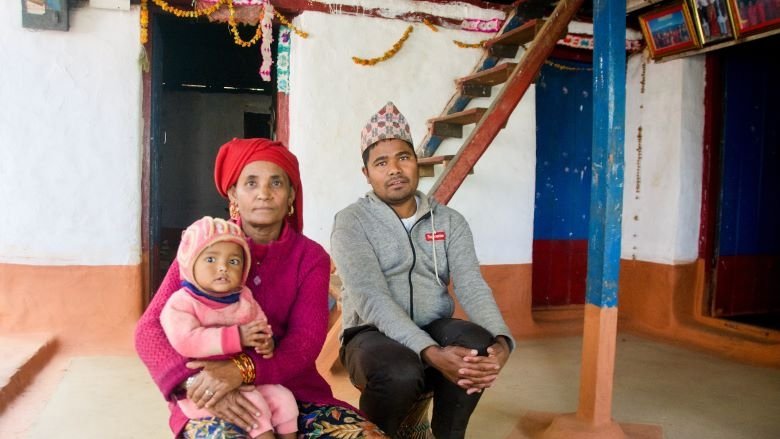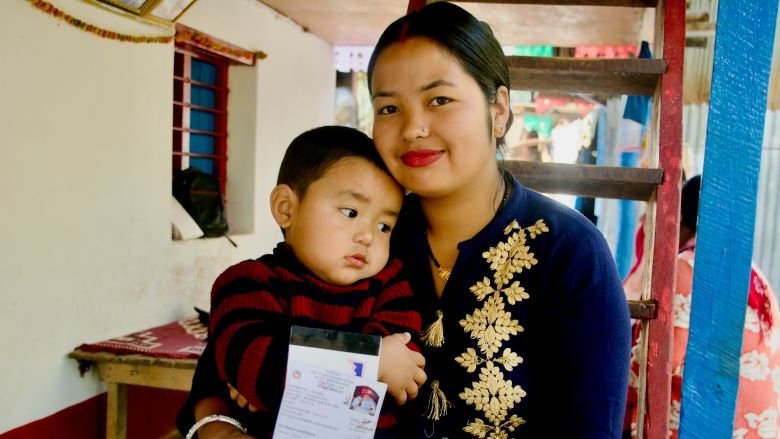Kusum's Story
Purna Bahadur and Lokmaya Bishwakarma have two daughters. Their older daughter, Kabita turned five, while Kusum is just getting on to her third.
As a Dalit (a traditionally discriminated and marginalized caste group) family with young children, they receive a monthly child grant of NPR 532 (approx. $4.07) from the government to help with the children¡¯s first five years.
They receive the money through the bank accounts in their children's names. The family was not connected to the banking system earlier. Grandmother Tulasimaya Bishwakarma, who is helping take care of Kusum in her early years, echoes many other beneficiaries when explaining the benefit of getting the grant through the banking system - ¡°The money stays in the bank account and is useful when the child really needs it, or else it¡¯s too easy to spend if given in cash!¡±
For Kusum, the family buys essential clothes, especially as it can get quite cold where they live in the hills of Phidim. They¡¯ve also spent the money on Kusum¡¯s occasional visits to the doctor. Kabita attends an elementary school in the bazaar. Apart from essentials like food and medicines in her first few years, the grant is supporting Kabita's education now, helping pay for admission fees. The family says they were able to save some money for this.
Father Purna Bahadur insists that they give their children as good an education as possible, even if it means living on less. "After us, we don't know what kind of a world it will be for the next generation. It will be different. The kids need to be best prepared," he says.?
He firmly believes that care in these early years will be essential for the children¡¯s development. "If we are nice to the children when they are little, they will turn out to be nice too, when they grow up," he says.?



